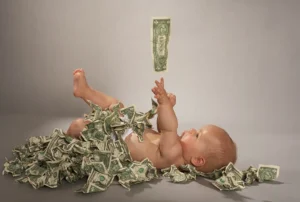April 15, 2016; Runner’s World
“I got a message through Facebook Messenger and she let me have it,” Lisa Miele told Runner’s World. “She told me that I was misrepresenting myself as a qualified runner and I had no right to say that, that I hadn’t qualified for anything, I was running for a charity.”
Miele is one of 6000 runners that will be competing in the Boston Marathon today on behalf of charities.
“She actually made a comment that she hoped I never made it up Heartbreak Hill,” Miele said.
Apparently, as the prospect of attaining a qualifying time gets more competitive, some who do not end up qualifying (estimated at 4,562) harbor resentment against those who run for charity. Charity runners must raise at least $5,000 to compete. Those who ran last year for charity raised $28.3 million.
“For many runners, qualifying and participating in the Boston Marathon is the highlight of their running careers,” a Boston Athletic Association spokesperson wrote in an email to Runner’s World. “While it is extraordinarily difficult to inform those who have qualified that there is not enough space for everyone, we also recognize that this is an eagerly-anticipated event for many charitable organizations and nonprofits in our community.”
Sign up for our free newsletters
Subscribe to NPQ's newsletters to have our top stories delivered directly to your inbox.
By signing up, you agree to our privacy policy and terms of use, and to receive messages from NPQ and our partners.
“I think they should be allowed, but I think the 6,000 charity [and invitational] runners is excessive,” runner Adam Frager told Runner’s World. “I think there’s some place for charity, but not at the expense of qualifiers.”
Keith Somers of New Hampshire, who has qualified and run the course four times, agrees, saying, “I think that the people that actually work for their qualifying times deserve preferential treatment.” Somers believes that the charity runners are buying their way in; when he didn’t qualify this year, he posted a negative comment on the Boston Marathon’s Facebook page and got “quite a lashing” in return.
Jeff Maher of Kansas says that he ran his first Boston Marathon five years ago as a charity runner. In subsequent years, he qualified but still ran three more times for Jumpstart for Young Children. “I still look back at my first Boston and I’m so much more proud of the fact that I was able to go out and raise $20,000 for a charity, have a great race, and really enjoy it,” Maher said. “That, to me, was even more meaningful than earning my way in.”
Susan Hurley, owner and founder of Charity Teams, which helps charity runners train and fundraise for the Boston Marathon and other races, says that over the years, she’s seen attitudes improve toward the charity runners. Nevertheless, she’d like to see “something on the Boston Marathon [registration page] that says, ‘As a registered runner, you can also run for charity, which charity would you like to run for?’”
“I would love to see that,” Hurley said.—Ruth McCambridge











